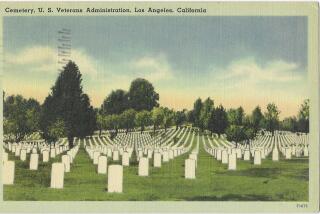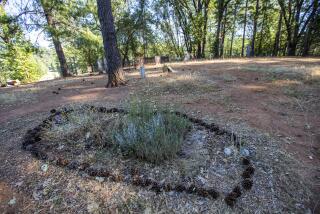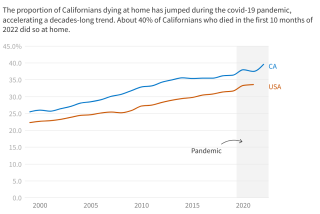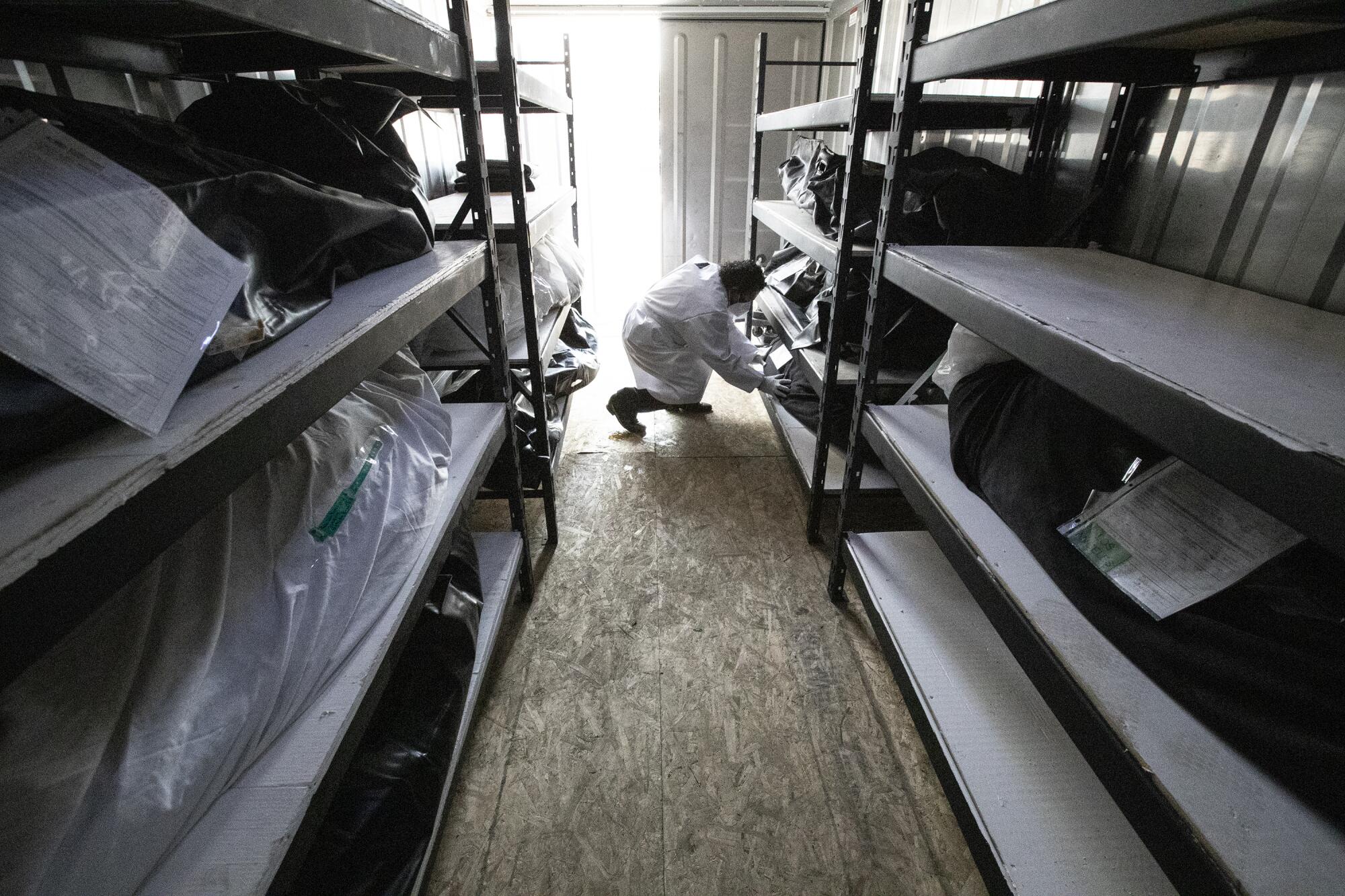
The novel coronavirus has ravaged California’s Latino communities, with many people who are front-line workers catching COVID-19 and then spreading the disease to family and neighbors.
This grim cycle of illness and death ends at places like Continental Funeral Home. Mortuaries that serve Latino communities have been overwhelmed by families in need of help since March, with bodies in some cases stacking up as operators tried to improvise funerals that previously might have drawn extended family and mourners from far and wide.
“It’s been so difficult for the families,” said Magda Maldonado, director of Continental Funeral Home. “They have been unable to express their condolences properly or participate in service.”
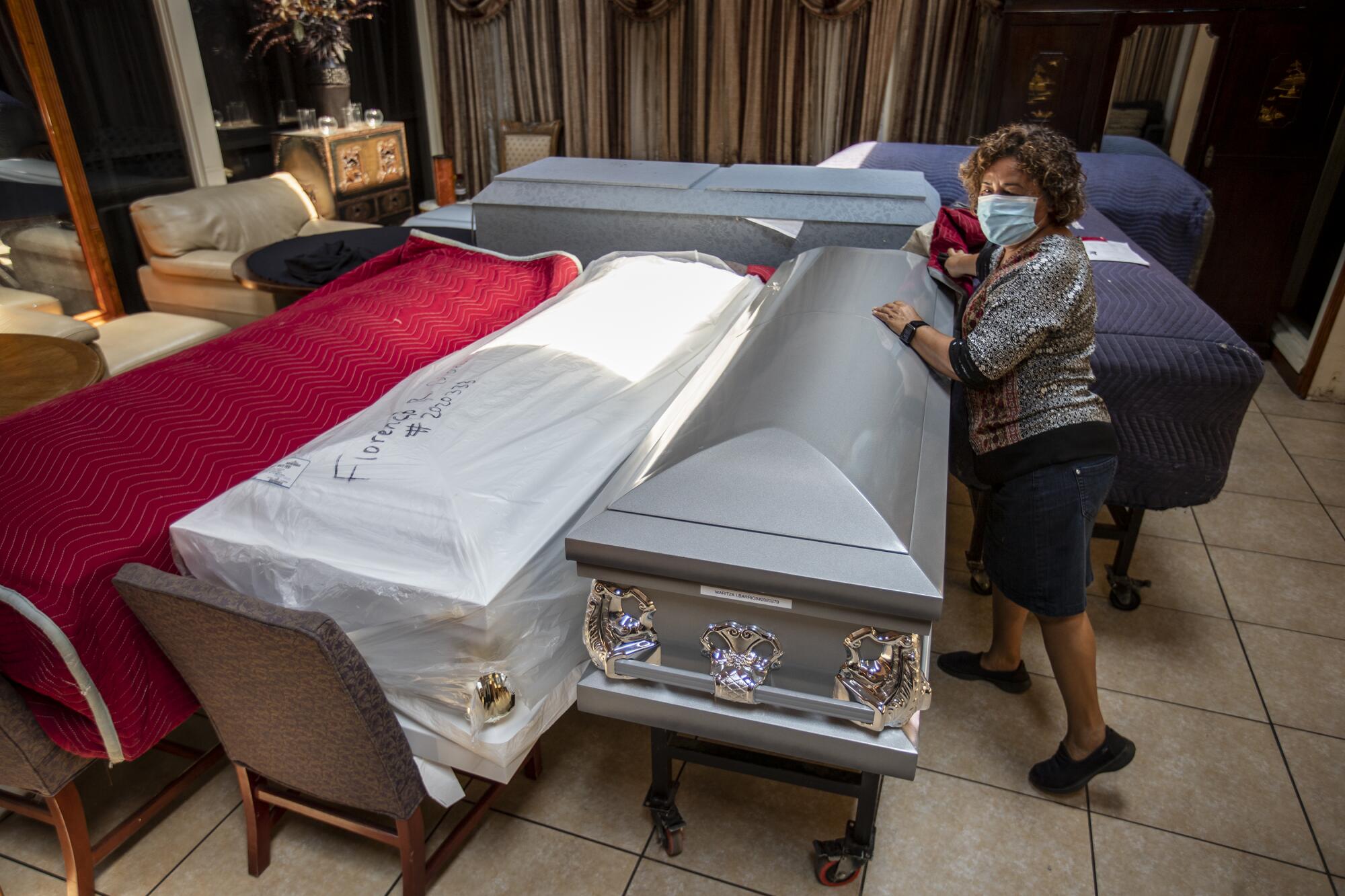
In California, Latinos make up 39% of the state’s population but account for 59% of COVID-19 infections and 47% of deaths, according to the state Department of Public Health. Immigrants have been particularly hard-hit economically amid the pandemic, with many losing their jobs and facing financial collapse.
Maldonado sees these hardships at her funeral home. Most of her clients are immigrants from Mexico and Central America, and 60% of her business is devoted to transporting bodies to their homelands because it’s less expensive to bury loved ones there.
When the coronavirus outbreak hit, a flood of bodies was sent to Maldonado’s funeral home. The cold storage could hold only up to 25 at a time.
“We were dealing with 35 to 40 bodies at one point in the month of March,” she said.
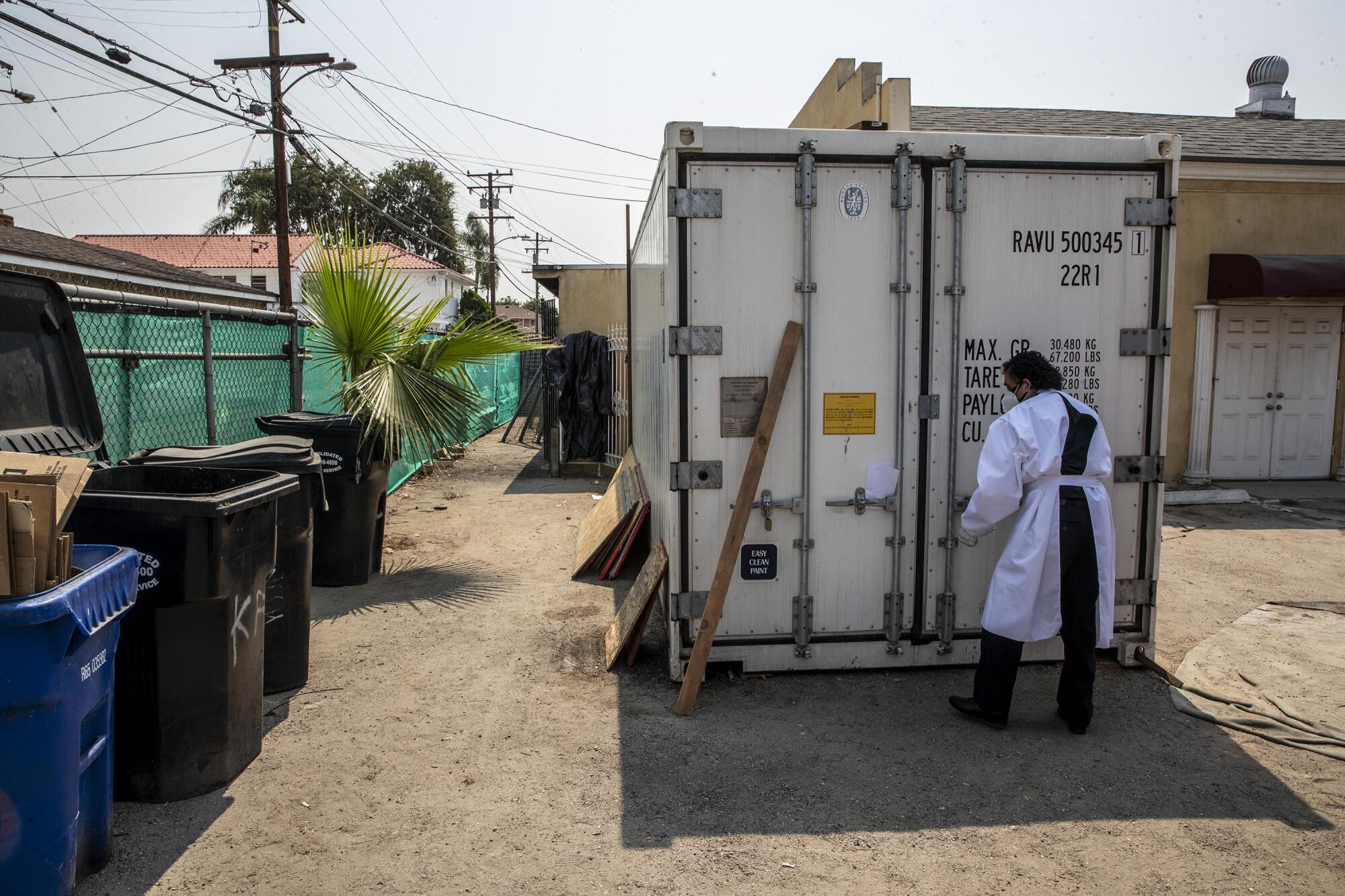
To handle the overflow, she rented a small refrigerated storage container for $1,900 a month, which increased the funeral home’s capacity to about 55 bodies. It also helped separate the bodies of people who died of complications from COVID-19 from those who died of other causes.
She said capacity problems had more to do with the shutdowns. Required paperwork from state and county offices that once took a few days was taking weeks. The process to send a body back to Mexico stretched from 10 days to two months. Cremations that once took a day now had to be made by appointment.
“It really caught us all off guard,” Maldonado said. “Local governments didn’t know how to really manage this kind of emergency, and I don’t think anyone thought about all these other funeral problems we’d have.”
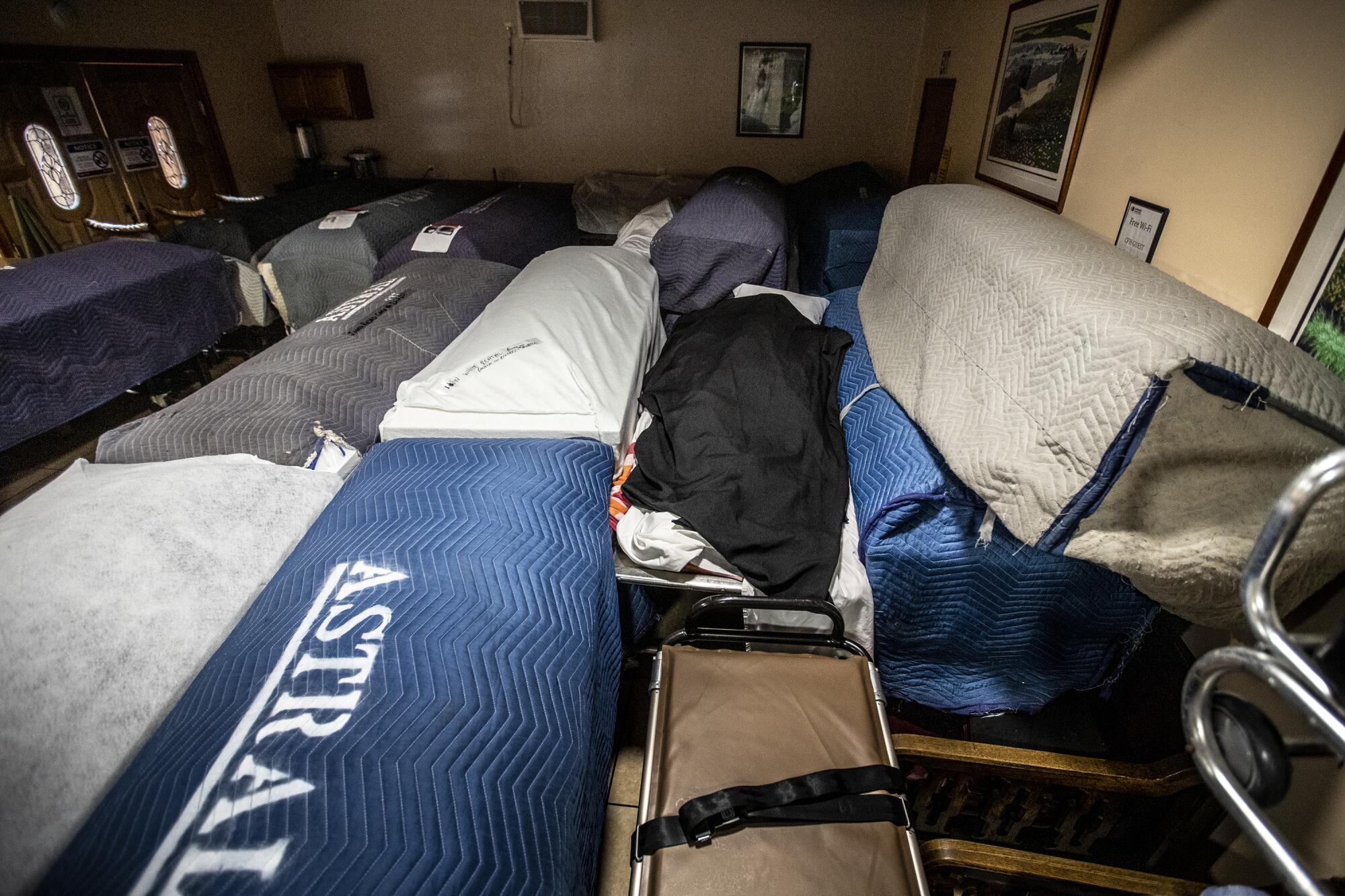
The pandemic has increased operating costs for Maldonado, which in turn hurts the families she’s been trying to serve. The cost of transporting a body to Michoacan, Mexico, for example could grow to $4,200; in the past she could shave off about $1,500 if the family could not pay the full amount. But now, she has reserved those discounts for only the neediest of families or consulates that are assisting people.
But the biggest challenge facing funeral homes is basic: How to give families a chance to mourn loved ones while keeping those who attend the funerals from getting sick.
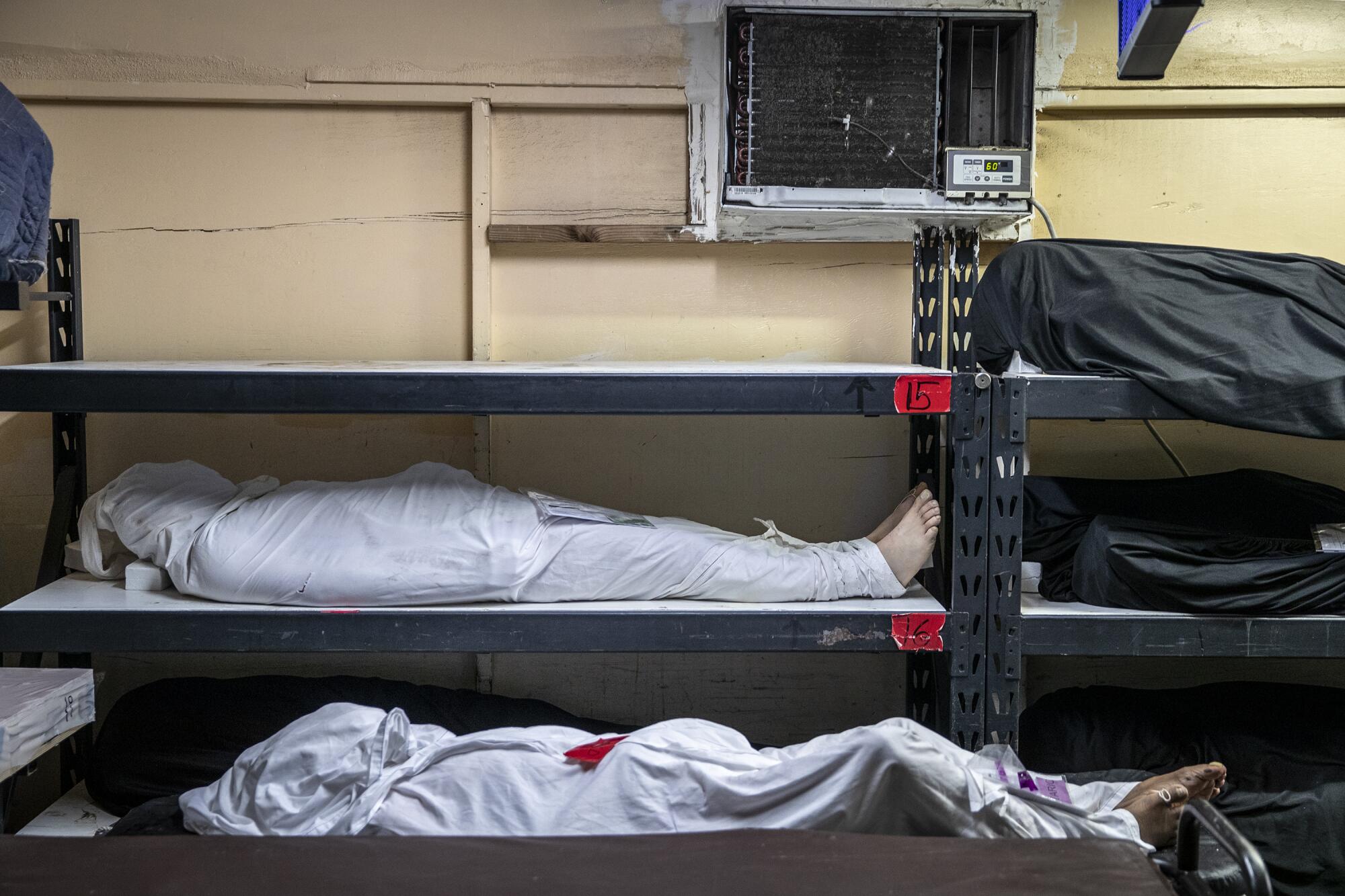
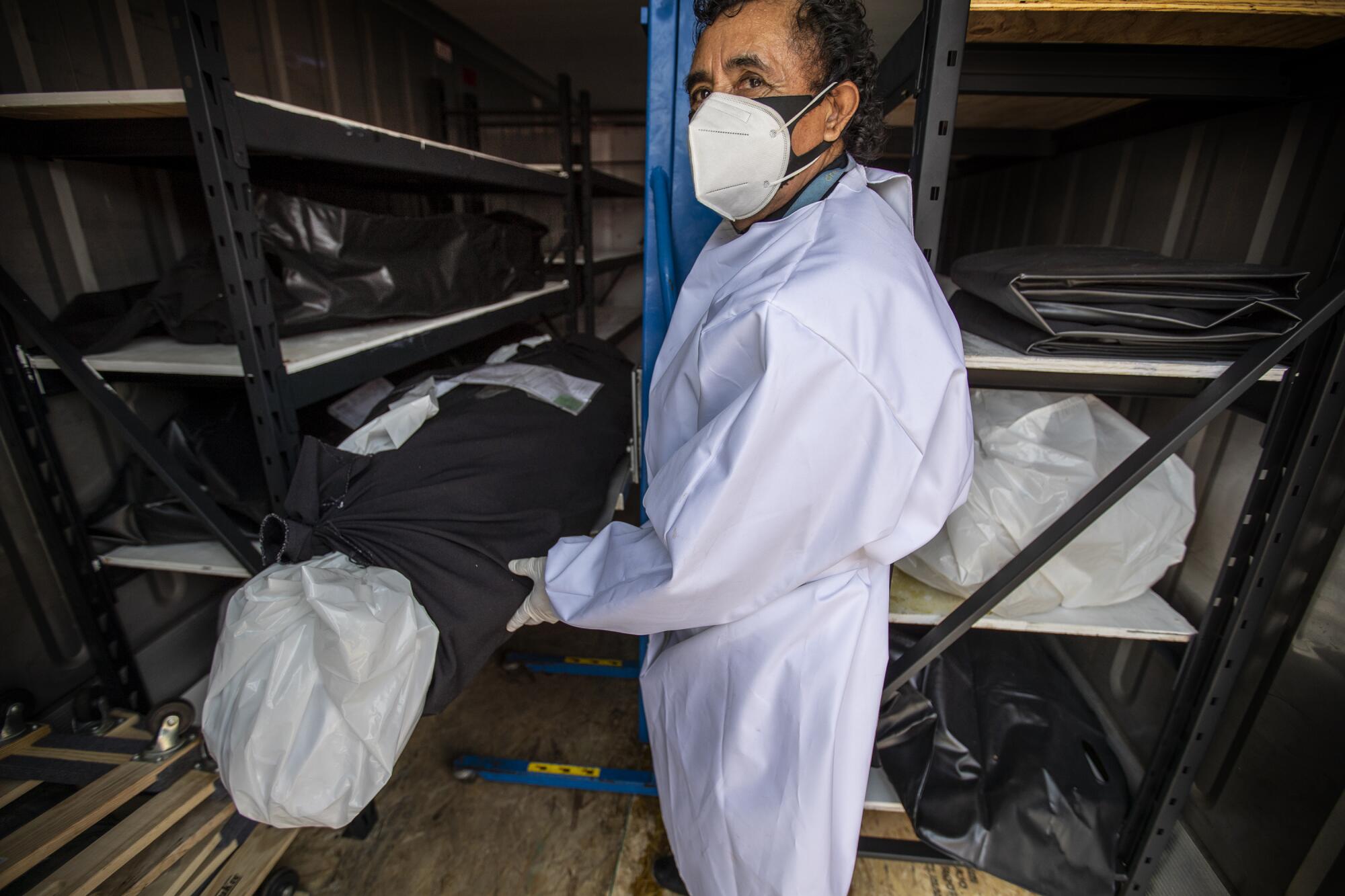
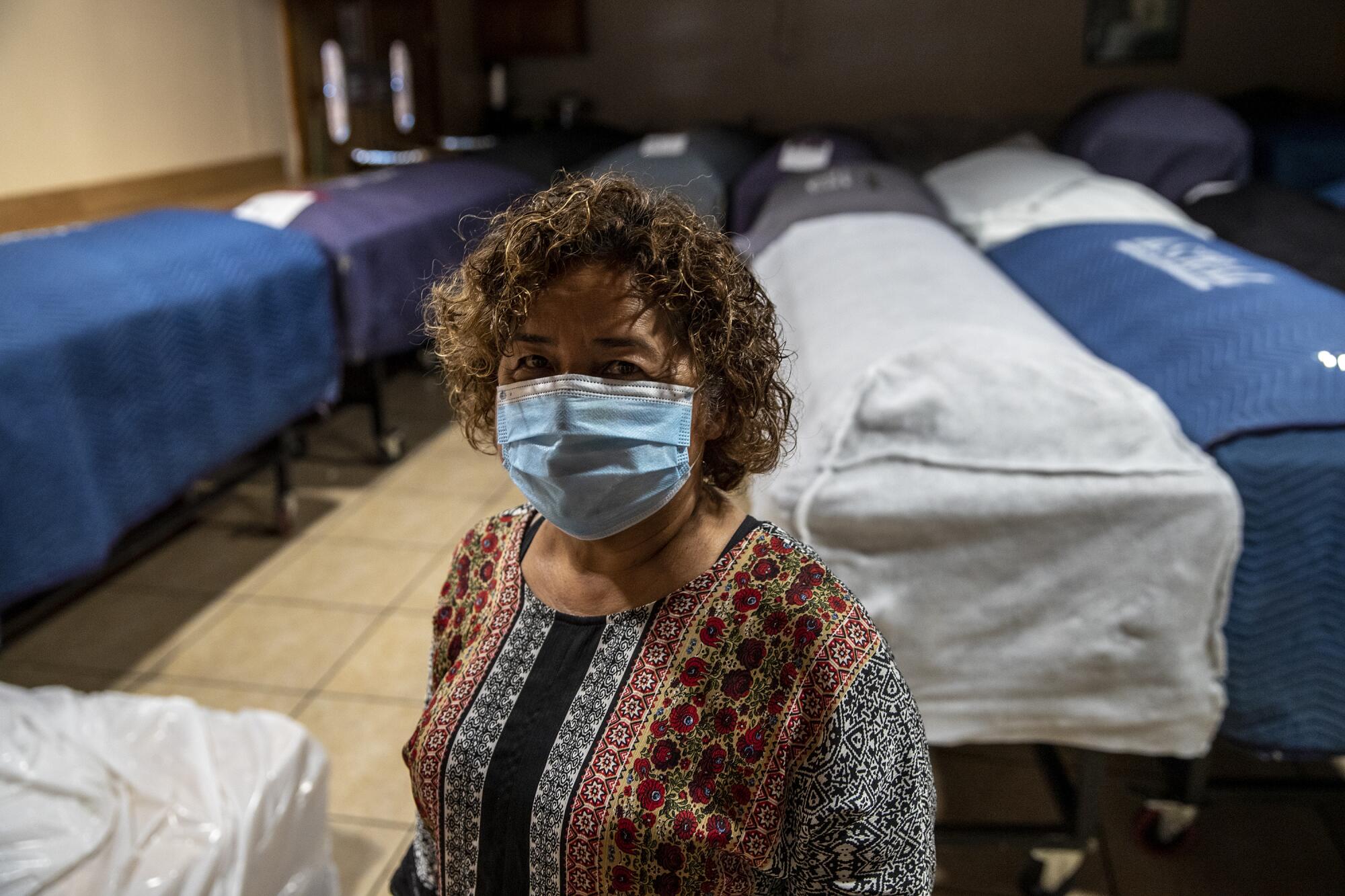
More to Read
Start your day right
Sign up for Essential California for news, features and recommendations from the L.A. Times and beyond in your inbox six days a week.
You may occasionally receive promotional content from the Los Angeles Times.
